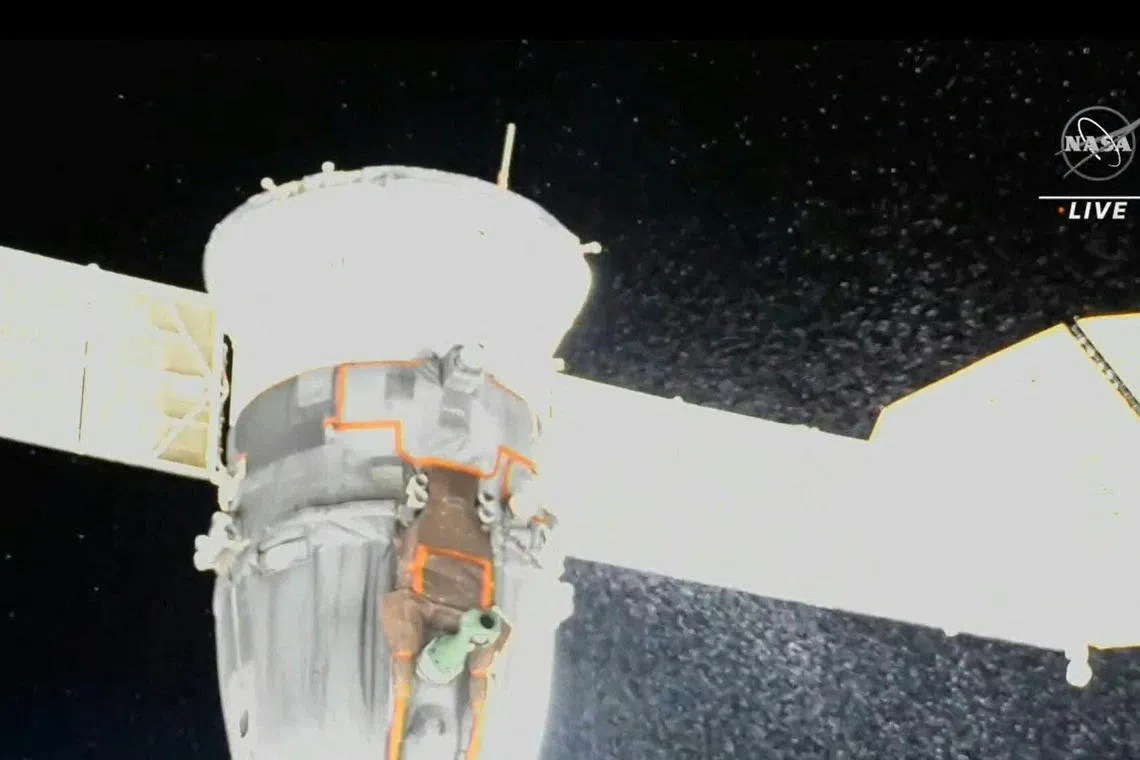Russia to launch Soyuz rocket to bring back cosmonauts from ISS after leak
Sign up now: Get ST's newsletters delivered to your inbox

An image taken from a video showing liquid spraying from the aft end of the Soyuz MS-22 spacecraft.
PHOTO: AFP
MOSCOW - Russia said on Wednesday it would launch another Soyuz rocket on Feb 20 to bring home two cosmonauts and an American astronaut from the International Space Station (ISS) after their original capsule sprang a coolant leak in December.
The leak stemmed from a tiny puncture in the external radiator of the Soyuz MS-22 capsule that is currently docked to the ISS and had been due to bring the three crew members back to Earth in March.
“The expedition of Sergey Prokopyev, Dmitry Petelin and Francisco Rubio to the ISS is being extended. They will return to Earth on Soyuz MS-23,” Roskosmos said.
“The launch of the Soyuz MS-23 will be on Feb 20, 2023 in an unmanned mode,” Roskosmos said.
The MS-23 launch was earlier planned for mid-March. MS-22 will descend to Earth without a crew, it said.
Roskosmos said damage to the radiator pipeline occurred as a result of a meteorite.
“The diameter of the hole is less than 1 millimetre,” it said.
The incident has disrupted Russia’s ISS activities, forcing a suspension of spacewalks by its cosmonauts as officials focus on the leaky capsule, which serves as a lifeboat for the crew.
The leak is also a problem for Nasa. It said in December it was exploring whether SpaceX’s Crew Dragon spacecraft could offer an alternative ride home for some ISS crew members, in case Russia is unable to launch another Soyuz. REUTERS


